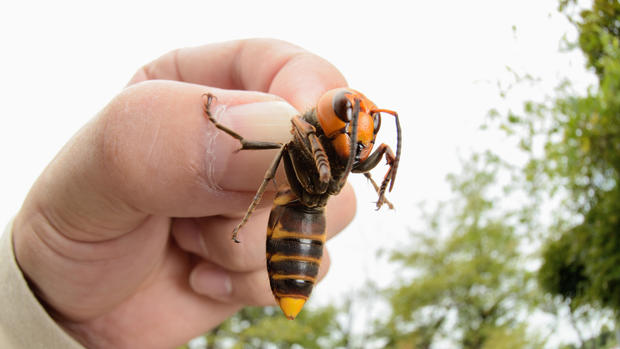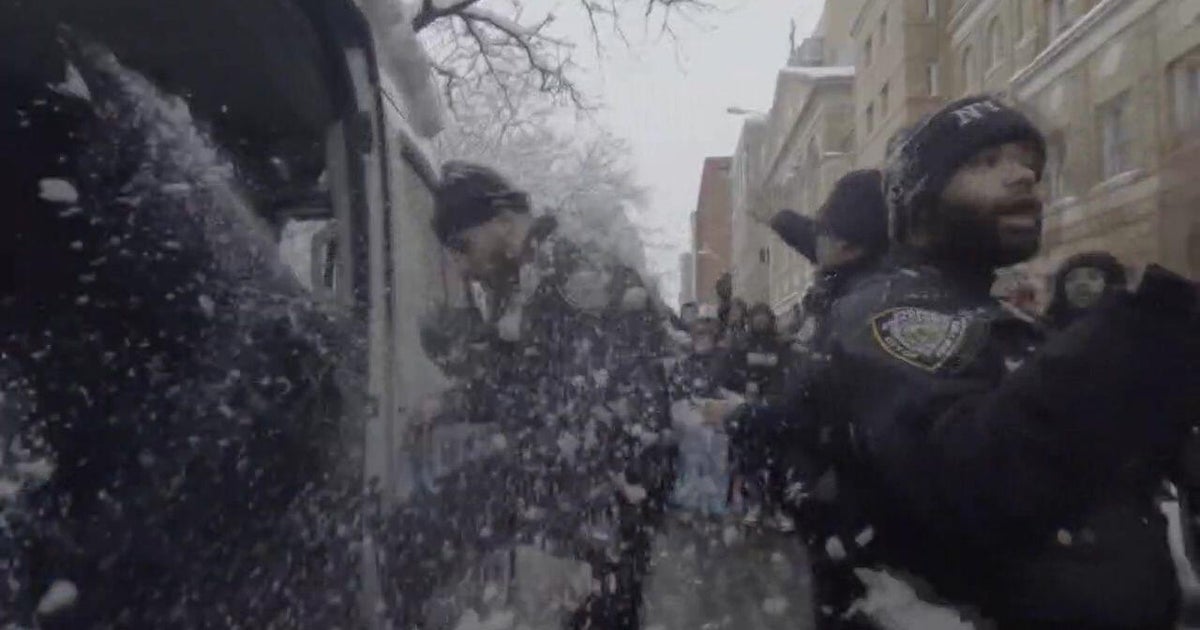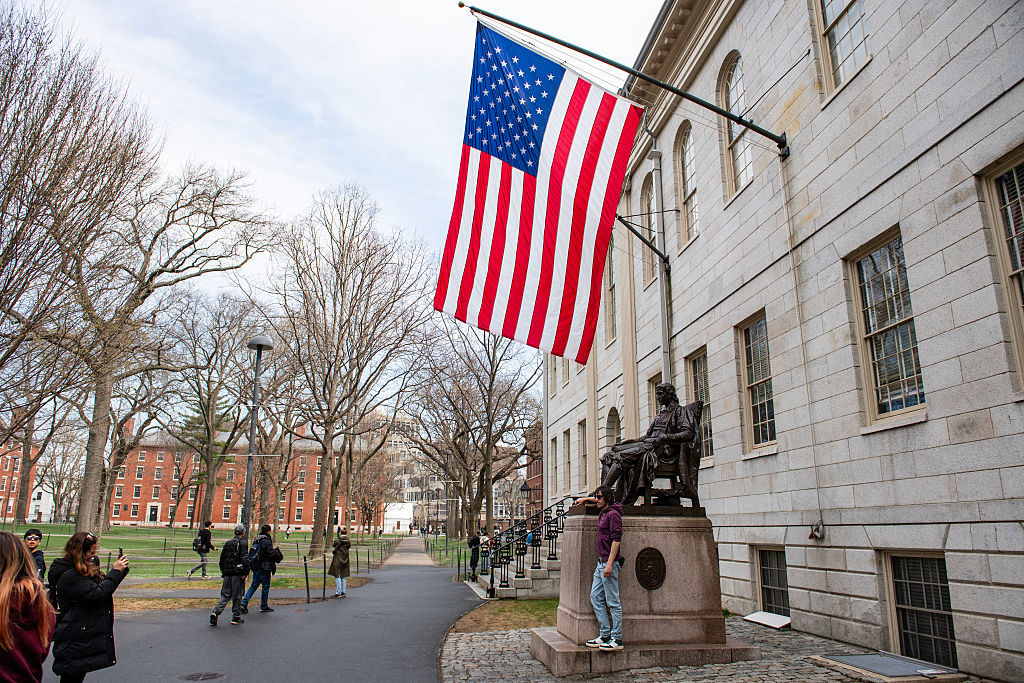"Murder hornets" given new name by scientists in Washington state
The invasive hornet found in Washington state that has been referred to as the Asian giant hornet or "murder hornet" has a new name.
Washington state Department of Agriculture officials said Monday that the Entomological Society of America (ESA) has adopted "northern giant hornet" for the species Vespa mandarinia in its Common Names of Insects and Related Organisms List.
The hornets can grow to more than two inches long and are known for decimating honeybee hives and delivering painful stings to humans.
There has been no official ESA common name since its introduction in North America became widely known in 2020, officials said. Washington state will use the new common name.
The proposal to establish a common name came from Dr. Chris Looney, who has been actively involved in the state's hornet research and efforts to eradicate northern giant hornet from Washington, officials said.
The new name is intended to comply with ESA's insect common names guidelines, which include avoiding naming insects using geographic regions.
The northern giant hornet is native to Asia and has been the target of eradication efforts in Washington state and British Columbia, Canada, after hornets were first discovered in both locations in 2019.
The insects are the world's largest hornets, and are considered invasive in North America for their ability to kill other bee and hornet species. A study published last year found that honey bees will buzz, run, and use loud, unique sounds to alert their fellow hive members when murder hornets attack
Scientists believe the hornets in the U.S. are confined in Whatcom County, which is located on the Canadian border north of Seattle. Washington state entomologists have so far eradicated four northern giant hornet nests.
Scientists said in May they were setting about 1,000 hornet traps in the area in 2022. Hornets caught in traps help scientists find the location of nests.
Last year, Washington state officials destroyed a nest, finding nearly 1,500 hornets "in various stages of development."




